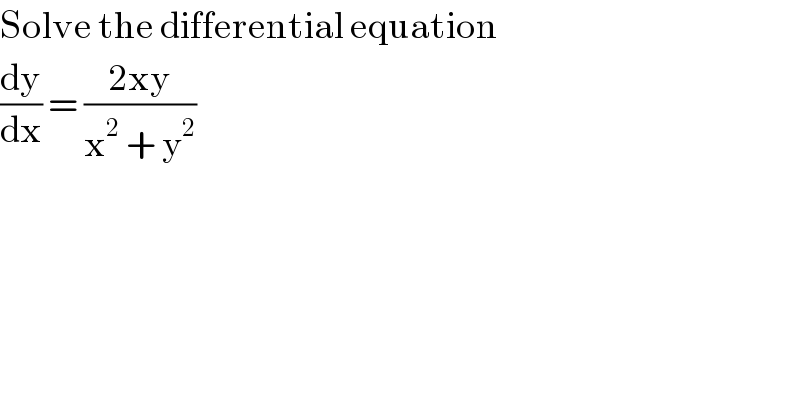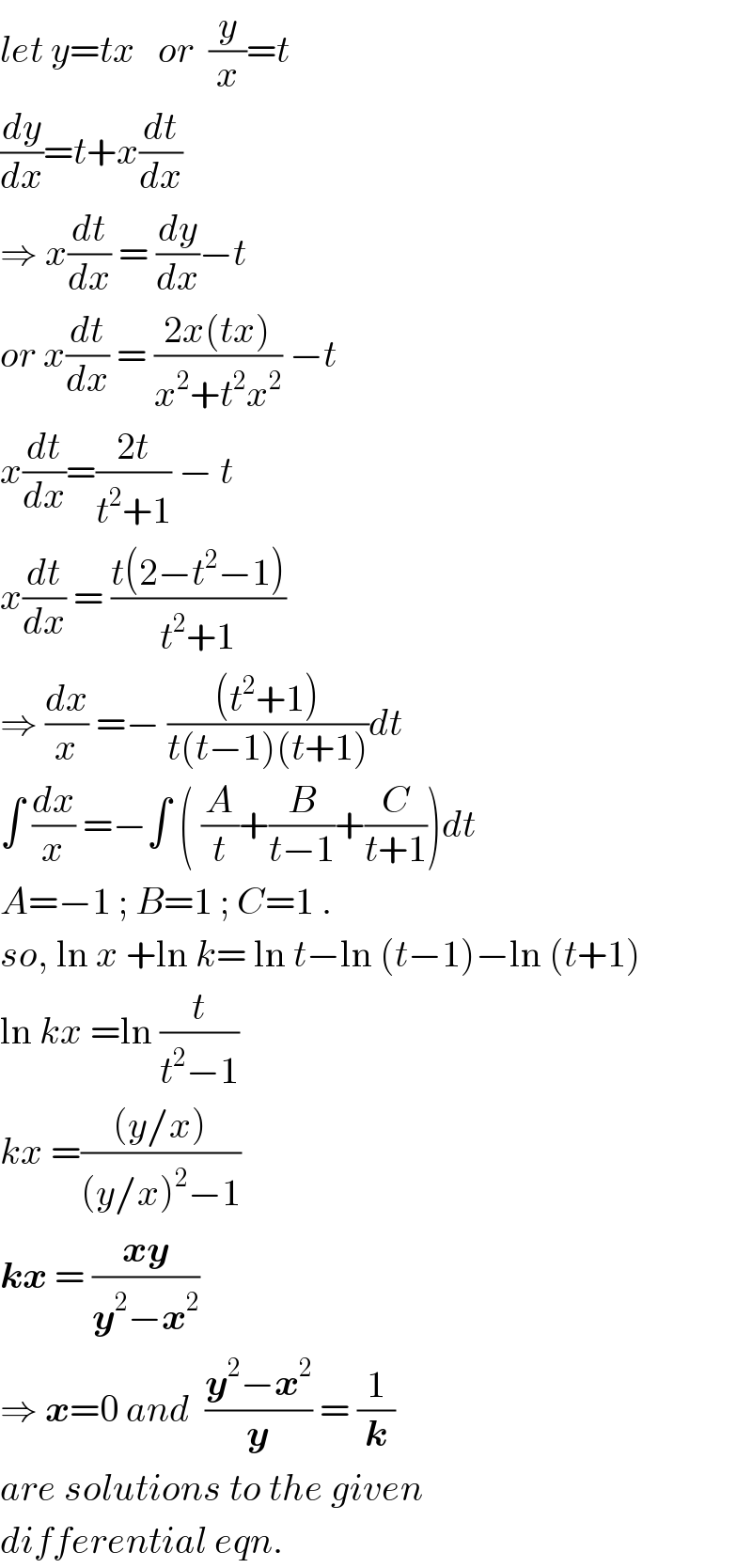
Question and Answers Forum
Previous in Differential Equation Next in Differential Equation
Question Number 12228 by tawa last updated on 16/Apr/17

Answered by mrW1 last updated on 16/Apr/17
![u=(y/x) y=ux (dy/dx)=x(du/dx)+u (dy/dx)=((2xy)/(x^2 +y^2 ))⇒ x(du/dx)+u=((2u)/(1+u^2 )) x(du/dx)=((2u)/(1+u^2 ))−u=((u(1−u^2 ))/(1+u^2 )) ((1+u^2 )/(u(1−u^2 )))du=(1/x)dx ∫((1+u^2 )/(u(1−u^2 )))du=∫(1/x)dx (1/2)∫((1+u^2 )/(u^2 (1−u^2 )))du^2 =∫(1/x)dx (1/2)∫((1+w)/(w(1−w)))dw=∫(1/x)dx (w=u^2 ) ∫[(1/w)+(2/(1−w))]du=2∫(1/x)dx ln w−2ln (1−w)=2ln x+C_1 ln (w/(x^2 (1−w)^2 ))=C_1 ln (u^2 /(x^2 (1−u^2 )^2 ))=C_1 2ln (u/(x(1−u^2 )))=C_1 (u/(x(1−u^2 )))=e^(C_1 /2) =(1/C) (y/(x^2 (1−(y^2 /x^2 ))))=(1/C) (y/(x^2 −y^2 ))=(1/C) y^2 +Cy=x^2](Q12233.png)
Commented by tawa last updated on 16/Apr/17

Commented by ajfour last updated on 16/Apr/17

Commented by mrW1 last updated on 16/Apr/17

Commented by tawa last updated on 16/Apr/17

Answered by ajfour last updated on 16/Apr/17

Commented by tawa last updated on 16/Apr/17

